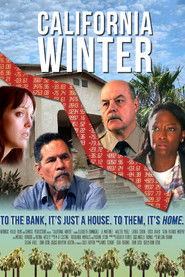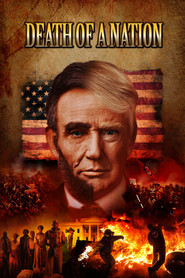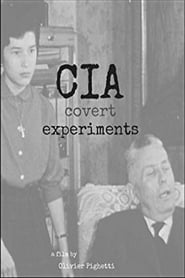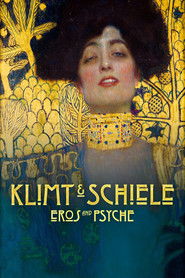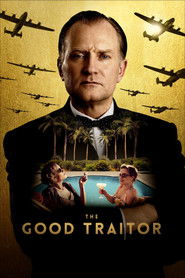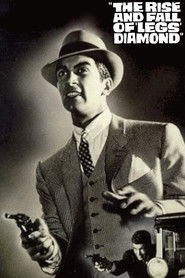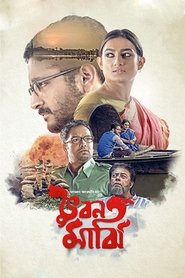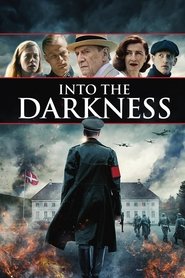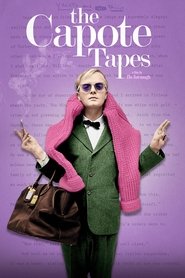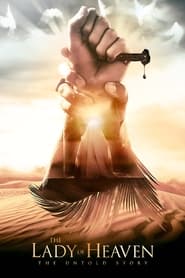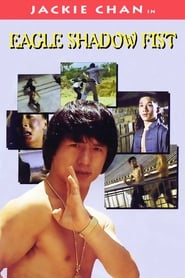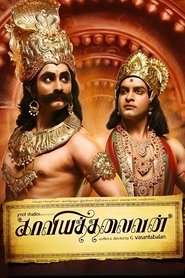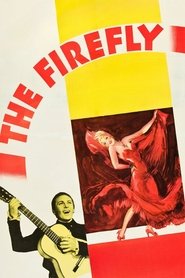Popular History Movies on YouTube - Page 57
-
Beyond Utopia
2023
Beyond Utopia
2023
star 7.7A courageous pastor uses his underground network to rescue and aid North Korean families as they risk their lives to embrace freedom. -
California Winter
2015
California Winter
2015
star 10Young real estate agent Clara Morales encouraged risky loans to her clients during the housing boom. She must now rescue her father’s home from foreclosure - a consequence of the loan she advised him to take. -
Death of a Nation
2018
Death of a Nation
2018
star 4.1Parallels are drawn between Abraham Lincoln's presidency and the presidency of Donald Trump. Not since 1860 have the Democrats so fanatically refused to accept the result of a free election. That year, their target was Lincoln. They smeared him. They went to war to defeat him. In the end, they assassinated him. -
CIA Covert Experiments
2015
star 7.3It is August 1951 and an entire French village goes crazy. People are screaming in the streets and throwing themselves out of windows. 300 people are affected and 7 end up dead. Wild theories start circulating to explain the tragedy. 60 years later declassified documents from the United States reveal that the CIA conducted experiments on unsuspecting citizens. -
Sword of God
2020
Sword of God
2020
star 4In the early Middle Ages, two Christian knights set off to christen a small pagan village hidden deep in the mountains. Despite the differences in their views and perspectives on religion, the two men become travel companions and create a father-son relationship. As they settle into the local community, their faith, belief system and the bond between them are all put to the test. Soon, love is confronted with hate, dialogue with violence, madness with rules and many will have to die. -
For No Good Reason
2012
For No Good Reason
2012
star 6.8For No Good Reason a film about Ralph Steadman. Johnny Depp guides the visually stunning journey, smashing narrative conventions, moving seamlessly from interview to animation and in the finest Gonzo tradition questions of witness and authenticity are challenged. Steadman's art is for the first time animated, including illustrations from Hunter S Thompson's Fear and Loathing in Las Vagas. Featuring Richard E Grant, Terry Gilliam, Bruce Robinson and with music from Slash, The All American Rejects, Jason Mraz, Crystal Castles, Ed Hardcourt and Beth Orton. A touching and at times funny film about honesty, friendship and the ambition driving an artist. This is a true record of the demise of the 20th Century counterculture and hipster dream with Ralph Steadman the last of the Gonzo visionaries. -
First Signal
2021
First Signal
2021
star 3.4When Air Force Space Command receives a signal from an alien satellite in Earth orbit an emergency meeting with the President reveals a government conspiracy. -
The Boy in the Woods
2023
The Boy in the Woods
2023
star 6.8The remarkable true-life survival story of a Jewish boy hiding and being hunted in the forests of Nazi-occupied Eastern Europe, based on Maxwell Smart's memoir. -
Island of the Blue Dolphins
1964
star 6.2Based on the beloved book by Scott O'Dell, this family movie tells the adventures of a young Native American girl. After her father is killed by a malevolent white trapper, Karana joins her community as they leave their island home in the Pacific to live on the mainland. Upon her departure, Karana realizes that her brother has been left behind. She immediately swims back to be with him and the two remain on the abandoned island. Though Karana is able to domesticate a wolf, her brother is not so fortunate with the animals and is killed by a pack of wild dogs. She is left to survive against the odds. -
Klimt & Schiele: Eros and Psyche
2018
star 71918. As the roar of the First World War cannons is dying out, in Vienna, the heart of Central Europe, a golden age comes to an end. The Austro-Hungarian Empire is beginning to disintegrate. On the night of October 31st, in the bed of his home, Egon Schiele dies, one of the 20 million deaths caused by the Spanish flu. He dies looking at the invisible evil in the face, in the only he can do: painting it. He is 28 years old. Only a few months earlier, the main hall of the Secession building had welcomed his works: 19 oil paintings and 29 drawings. His first successful exhibition, a celebration of a new painting idea that portrays the restlessness and desires of mankind.A few months earlier, his teacher and friend Gustav Klimt had died. From the turn of the century, he had fundamentally changed the feeling of art and founded a new group: the Secession. -
The Good Traitor
2020
The Good Traitor
2020
star 5.6The Danish ambassador to Washington declares himself to be the sole representative of a free Denmark during the Nazi occupation of the country. -
The Rise and Fall of Legs Diamond
1960
star 5.8Jack Diamond and his sickly brother arrive in prohibition New York as jewelry thieves. After a spell in jail, the coldly ambitious Diamond hits on the idea of stealing from thieves himself and sets about getting close to gangster boss Arnold Rothstein to move in on his booze, girls, gambling, and drugs operations. -
Bhuban Majhi
2017
Bhuban Majhi
2017
A Journey of 4 decade with love and passion. Things will arrive as certain threat while characters are moving through a real history. End turn to endless. -
Into the Darkness
2020
Into the Darkness
2020
star 6.1Karlskov is a self made, successful owner of a large electronics factory, has a wife and five children. They live the good, privileged upper-class life on Strandvejen north of Copenhagen when the Nazis occupy Denmark in April 1940. Karl struggles to continue production at the factory, but to protect his family and employees he reluctantly begins to produce for the German market. It brings him into a controversial collaboration with the occupying power and causes painful breaks in the family. -
The Capote Tapes
2021
The Capote Tapes
2021
star 5.9A portrait of the brilliant American writer Truman Capote (1924-84) and the New York high society of his time. -
Tales from the Royal Wardrobe
2014
star 7Today, few people's clothes attract as much attention as the royal family, but this is not a modern-day paparazzi-inspired obsession. Historian Dr. Lucy Worsley, Chief Curator at Historic Royal Palaces, reveals that it has always been this way. Exploring the royal wardrobes of our kings and queens over the last four hundred years, Lucy shows this isn't just a public fascination, but an important and powerful message from the monarchs. From Elizabeth I to the present Queen Elizabeth II, Lucy explains how the royal wardrobe's significance goes far beyond the cut and color of the clothing. Royal fashion is, and has always been, regarded as a very personal statement to reflect their power over the reign. Most kings and queens have carefully choreographed every aspect of their wardrobe; for those who have not, there have sometimes been calamitous consequences. As much today as in the past, royal fashion is as much about politics as it is about elegant attire. -
The Lady of Heaven
2021
The Lady of Heaven
2021
star 6.4Two stories separated by 1400 years. After losing his mother in the midst of a war-torn country, an Iraqi child learns the importance and power of patience by discovering the historical story of Lady Fatima and her suffering. -
Eagle Shadow Fist
1973
Eagle Shadow Fist
1973
star 5.6Historical movie set during the Japanese occupation of China during WWII. Jackie Chan is one of the good guys but has nothing much more than a supporting role. -
Kaaviya Thalaivan
2014
Kaaviya Thalaivan
2014
star 7Two rival artists at Sivadas Swamigal's drama troupe compete in everything they do. While one of them goes on to become successful, the other fails in life. -
The Firefly
1937
The Firefly
1937
star 6.4Nina Maria Azara is the beautiful and alluring singing spy for Spain during the Napoleonic Wars. Her mission is to seduce French officers, in order for them to reveal Napoleon's intentions toward Spain. She is sent to Bayonne, France to gather military secrets. Prior to this, she meets Don Diego while performing at a club. Unknown to her, Don Diego is actually Captain Andre, who is sent to Spain to spy on her. While in France, Nina discovers Diego's true identity, only after she has fallen in love with him. Nina Maria outwits her potential captors, returns to Spain and goes into hiding. Napoleon's troops invade Spain, resulting in Nina's capture. In a strange twist of fate, Nina and Captain Andre are reunited, but the 2 nations are now at war...
 Netflix
Netflix
 Amazon Prime Video
Amazon Prime Video
 Apple iTunes
Apple iTunes
 Apple TV Plus
Apple TV Plus
 Disney Plus
Disney Plus
 Google Play Movies
Google Play Movies
 Paramount Plus
Paramount Plus
 Hulu
Hulu
 HBO Max
HBO Max
 YouTube
YouTube
 fuboTV
fuboTV
 Peacock
Peacock
 Peacock Premium
Peacock Premium
 Amazon Video
Amazon Video
 The Roku Channel
The Roku Channel
 AMC+
AMC+
 Kocowa
Kocowa
 Hoopla
Hoopla
 The CW
The CW
 Vudu
Vudu
 Starz
Starz
 Showtime
Showtime
 PBS
PBS
 Pantaflix
Pantaflix
 FXNow
FXNow
 Tubi TV
Tubi TV
 Kanopy
Kanopy
 Comedy Central
Comedy Central
 Crunchyroll
Crunchyroll
 Microsoft Store
Microsoft Store
 Redbox
Redbox
 Sun Nxt
Sun Nxt
 ABC
ABC
 DIRECTV
DIRECTV
 Crackle
Crackle
 Fandor
Fandor
 Plex
Plex

